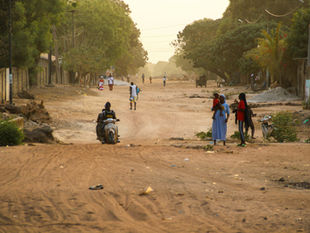.png)
LSESU WAR STUDIES SOCIETY
Following two years of violent combat, Ukraine launched a counteroffensive into the Kursk region of Russia in the summer of 2024. In response, Russia’s President, Vladimir Putin, has received 1,500 North Korean soldiers due to the growing threat on his borders. Mark Rutte, General Secretary of NATO, has described this North Korean deployment as a "significant escalation and a dangerous expansion" highlighting that the Ukraine war is far from over. North Korea's involvement in the conflict poses risks. The state is a politically isolated dictatorship, and since 2006 “the United Nations Security Council has passed nearly a dozen resolutions sanctioning the state for its nuclear weapon development and other related activities.”
Moreover, North Korean involvement in the Russia-Ukraine War provides Kim Jung Un's troops with insights into the workings of modern conflict. The effects of this are evident – on 1st November 2024, the North Korean army conducted its longest intercontinental ballistic missile test in over a year. Additionally, Putin is providing highly sophisticated military technology to the North Korean army in exchange for these troops. This not only rapidly increases North Korea’s threat towards NATO, but also further destabilizes the Korean peninsula. The Kremlin's gamble is evidenced by the "estimated 1,200 Russian casualties per day, a total of 600,000 since February 2022." Putin's mass conscription underscores not only the Kremlin's reckless decisions in response to military shortcomings but also the implications of these actions on global security.
The implications of North Korean involvement in the Ukraine war extend deeper than just the Ukraine conflict. This is one of the most significant threats to global security in the 21st century. The Russo-North Korean Comprehensive Strategic Partnership Treaty, signed in June 2024, commits either party to defend the other in the case of military attacks. This treaty poses clear dangers: potential war in Asia and Europe. NATO could deploy its own troops into Ukraine as a direct retaliation. This would activate Article 4 in the Collective Security Treaty Organisation, formed in May of 1992 by former Soviet countries, in which an attack on one post-Soviet state is considered an attack on all.
NATO must proceed with caution. The alliance must continue to offer unconditional support to Ukraine while being cautious, considering the turbulent geopolitical environment in which it operates. Continuing to build alliances with its Indochinese partners through intelligence sharing, cooperation, and improving defense systems is crucial to stay one step ahead of Russia, the country with the most nuclear warheads in the world (5889), as per the Federation of American Scientists. Nuclear proliferation from either side would forever destroy the world we currently live in, highlighting the importance of NATO’s role in current global affairs.
By: Giacomo Violetti






